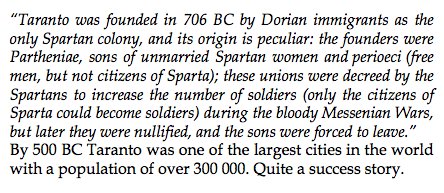The American Nativists Were Right
The term American Nativist refers to those native to America, the nation that was carved out from a mostly-unpopulated land — partially inhabited by dangerous and unpredictable Siberian-descended Indians — and was a political movement that opposed immigration from groups other than the Western European tribes who had settled the land: English, German, Scots, Dutch, Scandinavian and some Northern French.
Their vision was shared by the Founding Fathers, who saw America as a chance to break away from the rotted power structures of Europe, which had been usurped in the previous centuries but after the Mongol attacks by revolts of peasants and mercantile groups who hired their own mercenaries. With the Magna Carta, it became clear that commercial interests — hand-in-hand with popular revolt, as usual — had taken over local leadership and would use the king much like a democratic leader, as a shield for their activities.
Under the original concept, America was little more than a place with as little government as possible. The idea was that by selecting people who were all of roughly the same stock, namely Western European middle and upper classes, and letting them manage themselves through culture and religion, Americans could escape the corrupted power that now reigned in Europe. The country was designed to run itself, not be run by government.
As part of the first round of patches to the Constitution, the Founding Fathers added the Bill of Rights — and the 1790 Naturalization Act:
This article of legislation allowed an individual to apply for citizenship if they were a free white person, being of good character, and living in the United States for two years. Upon receiving the courts approval they took an oath of allegiance which was recorded. The individual’s citizenship was also extended to any children under the age of 21, regardless of their birthplace. If the applicant had never been a U.S. resident the application was disregarded.
At that point in time, “white” was understood to mean “Western European.” This was a cultural definition and not a legal one. It excluded two other groups, Southern Europeans (including the Irish) and Eastern Europeans, because those groups were racially-mixed and came from societies with lesser standards than those in Western Europe. The English found Italy and Spain to be wild and unprincipled, and described Eastern Europe the same way people talk about Mexico today.
There was immediate pushback to “expand the franchise.” Americans realized that as Europe crashed downward after the French Revolution, they had a property they could sell, which was inclusion in the American experience. A citizen here could make money by importing cheap labor, which would come for the higher standard of living, and using those to make cheap products. These people saw Southern and Eastern Europeans as business sees Mexicans today: a chance to profit and get out of the game.
The mercantile drive toward inclusivity was not the product of a shadowy cabal of “merchants,” but the mercantile instinct which arises in all of us and is always corrupt; “making money” usually means exploiting resources, including people, and cutting corners in order to pocket the cash. The aristocrats had old money, made by earning a position in a society; the gentlemen farmers of the South saw their money-making as resulting from bringing benefit to the community that sprung up around a plantation much as it had around the European manorial estates.
Naturally, these people — being canny salesmen — did not state their motives (causes) but talked in terms of benefits (effects). They cloaked their gambits in altruism, and claimed that they were rescuing poor Christian souls from horrible lives under cruel leaders, forgetting that genetics is destiny and each person from a broken state carries it with them. As Spengler and others have observed, government is a response to its people; a chaotic and unruly third-world style population creates those cruel taskmasters as the only way to maintain order and productivity.
Formed from those who were cynical about this whole process, and about “progress” — which back then meant cutting down all the trees and putting up more and more settlements — itself, the American Nativist movement had several births and rebirths and lives with us today anytime someone says, “You know, this country ran better under the WASP — a code word for ‘Western European’ — Establishment.” Their point was that America and Americans did not need growth, even if commercial interests in the cities wanted it.
Eventually they got shouted down, using ancestors of familiar terms. They were called bigots, ignorant and cruel-hearted, and so most of them backed down. The commercial interests swarmed in and imported tons of people, starting with the Irish who were quite controversial at the time. The Irish had higher rates of crime, drunkenness and domestic violence, as one might expect from people from a society closer on the spectrum toward the third world.
The new group could vote, and they hated the Nativist remnant. So much so that they picked a fight with them over slavery, and went to war with the gentlemen farmers of the South, who viewed slavery as a positive thing for African-Americans as it guaranteed employment and protected them from their own third world tendencies; this seems unkind to say, but being realistic is always kinder because it tends to produce better results, where fantasy creates misery.
In this way, the Civil War was the first American Race War: all European immigrants against those who were upholding the Western European core. This was only seventy years past the French Revolution, the same time-distance between now and the end of the Second World War. After the insurrection was put down, the new group held power. The WASP establishment hung on only in name and by virtue of pleasing these new citizens, which is why the East Coast WASP Establishment collapsed within fairly quickly, so that by the 1920s it had become mostly decadent, effete and impotent.
The First World War was built on the same model as the American Civil War: democracy accepts everyone, and not all people support democracy, so we will wage this war until everyone in Europe uses the same system. The anti-Nativists seized on this because democracy, or the political system of equality, was the force that compelled others to include them in American society or even German society. The First World War continued the tradition started by the Napoleonic Wars of attempting to “unify” Europe to make it powerful, all done under democracy so it could be “stable.”
This is why young men marched off to battle being told they were fighting the War to End All Wars, and yet had so much despair in their hearts they threw their lives away. On a subconscious level, which they could not articulate, they knew this was another vainglorious quest to find a System that could manage man, and that it would end in their eradication. It did: it opened the borders within Europe further and started obliterating the Native populations in Germany and France much as it was doing in the USA.
After that war, America doubled down on the ethnic experiment. It opened the gates to Eastern and Southern Europeans, including Spanish, Greeks, Italians, Russians — especially as they fled their own disastrous revolution, Jews, Gypsies, Poles and more Irish. This further adulterated the power of the Natives, which made the mercantile overlords quite happy. Before that time, these groups had existed only as trace elements, so that one in ten thousand people might belong to one of these groups.
When the Second World War — a continuation of the unfinished business of the First — began, the governments of European states were essentially held hostage by the anti-Natives. Democracy defended anti-Nativism; to not defend democracy, then, was to call into question the unchallenged legitimacy of this new mixed-European status. As a result, the Americans maneuvered themselves into war and then won it by flooding Europe with people, much as the Russians did. The anti-Nativist reverse race riot had begun and ended in mixed-blood American and Russian troops raping their way across Europe. In the model of democracy itself, this was a victory for the reversal of Darwinism.
The wars since that time have been ideological, because ideology drops a veil of confusion over the actual issue, which is civilization decline through demographics at the hands of the mercantile elites and their supporters among the masses. Most of these have been well-intended but poorly fought because democracy can only fight wars when it styles itself as a victim, which is to say pretends to be a victim but avoids actual victimization, so the first pictures of napalmed children or American boys facing one million well-fed Red Chinese tends to blow the story. The first does it because it removes our victim status and makes us a victimizer; the second, because it shows we might actually become victims.
This is the rot into which our time falls. It turns out the American Nativists were right, and all of the people calling them racists were just self-interested parasites. The same is true today. If you want to make your nation healthy, make it homogeneous by (1) telling others they must leave and (2) giving them financial incentive to do so:
Our civilization has been in decline for some time. The Middle Ages were a response to Greek and Roman decline, using the religion of Christianity to achieve unity of purpose. When those collapsed, under Mongol attacks and the resulting peasant and mercantile revolts, we were thrust into a degenerate time which peaked with the French Revolution, and since then has spent its time trying to make The System work. Maybe with just a few more patches… and yet, it always fails.
We need to get out of The System mentality. We do not need a system; we need a healthy demographic, very little government, and a values system including something above the material, whether that is simply ideals or metaphysical in nature. This will require some hard choices, like at Taranto, but this is the only way we will survive. From lofty perches of historical accuracy, the American Nativists cheer us on.
Tags: american civil war, american nativism, demographics, devolution, first world war, napoleonic wars, race war, second world war











